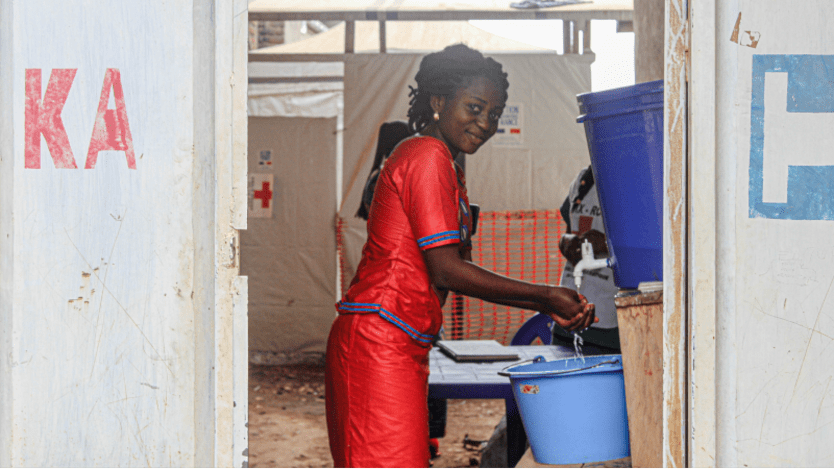
BELFAST, Northern Ireland — For more than 18 months, the Democratic Republic of the Congo has been battling a deadly Ebola outbreak, the world’s worst measles epidemic, and an outbreak of cholera — and now it is facing the threat of COVID-19.
For Robert Ghosn, head of operations in Congo for the International Federation of Red Cross and Red Crescent Societies, the worry is that donors might “look inward” in the face of the current crisis, withdrawing support just when it is needed most, as aid groups in the country juggle the demands of multiple outbreaks.
More in-depth for Pro subscribers: Q&A: IFRC's Jagan Chapagain on the fragmenting humanitarian space
IFRC's new secretary-general speaks to Devex about his plans for the organization and his concerns about the future of humanitarian work.
But, he said, it is also an important moment to recognize that outbreak-specific responses don’t work.
“As we all understand, humans have basic needs and they want these needs to be covered. And whether these needs are directly or indirectly linked to this other outbreak doesn’t really make much of a difference,” Ghosn said.
Despite the more than 300 cases of COVID-19 now confirmed in Congo — including in areas previously affected by Ebola — this is why IFRC does not plan to simply switch its 1,600 local volunteers from the response for Ebola to the new coronavirus.
Instead, it is better to continue responding to Ebola while strengthening communities so they’re able to respond to other outbreaks as well, Ghosn said.
“We still have a plan to transition beyond Ebola. It wasn’t specifically for COVID-19 because we don’t believe we should have one plan for outbreaks. We should strengthen the resilience of communities to respond to outbreaks and other emergencies,” he said.
“The health authorities do not have the capacity to control these outbreaks, so it falls to the communities to fend for themselves.”
— Robert Ghosn, head of operations in Congo, IFRCThat includes building communities’ capacity to prevent and prepare for outbreaks — for example, by training Red Cross volunteers and others on how to respond to outbreaks and to identify the signs at an early stage.
While Congo had been hoping to declare the end of its 10th active Ebola outbreak last week, new cases were detected days before the announcement was due.
“The situation here is so difficult that the health authorities do not have the capacity to control these outbreaks, so it falls to the communities to fend for themselves,” Ghosn said.
IFRC learned from its Ebola work that top-down messaging isn’t effective and that listening to community needs is key. “What we’ve seen is the value of community engagement,” he said. It’s not enough to simply give instructions, he added; instead, aid organizations must listen to people and help them adapt within their own context.
“It’s important to localize responses and to take into account the social fabric and the way the communities are strengthened,” Ghosn said, adding that the way COVID-19 is tackled in Rome will need to be different than in Beni. “You can take stay-at-home orders in some places on Earth, but you can’t do it everywhere. And you certainly can’t do it in eastern DRC like you might do in Brussels. … It’s important to understand that it isn’t one-size-fits-all,” he said.
Visit our dedicated COVID-19 page for news, job opportunities, and funding insights.









